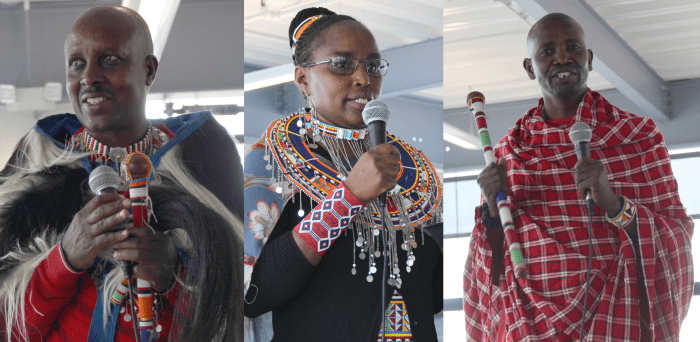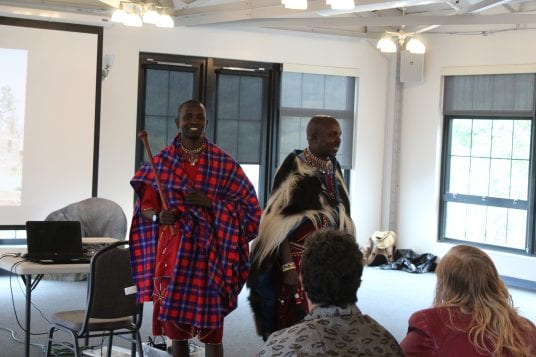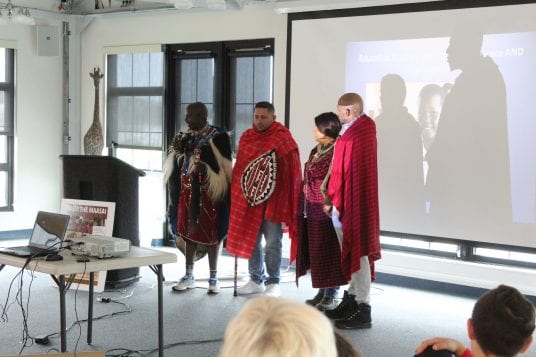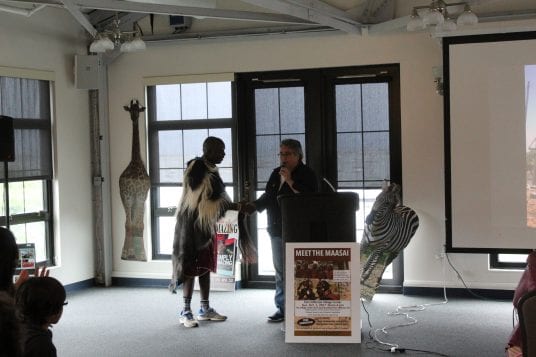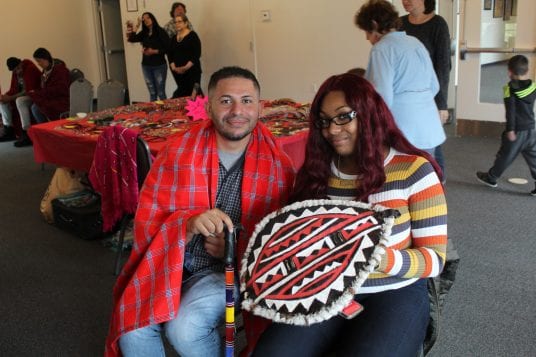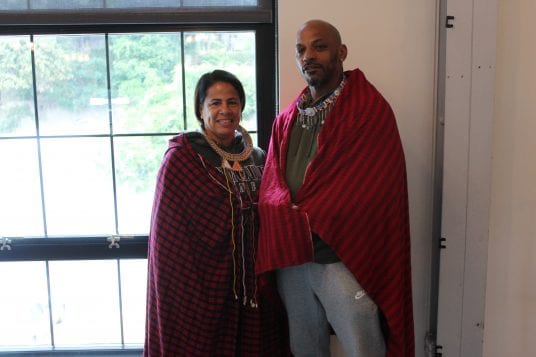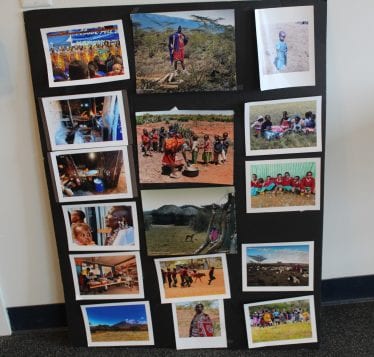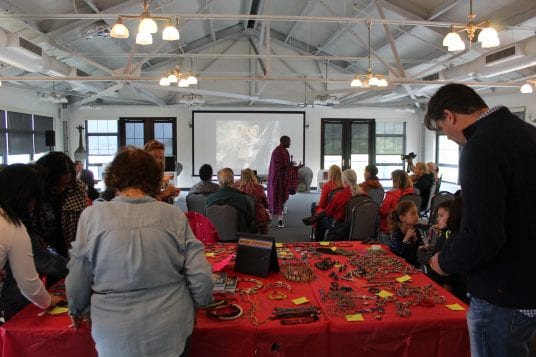Following a multiyear delay due to COVID-19, representatives of Port Jefferson’s sister village visited last weekend.
On Saturday, April 22, the chief of the Maasai tribe in Kenya returned to the Port Jefferson Village Center with two fellow members of the tribe. The Maasai delegation presented on local developments in Kenya since its last visit, as the shadow of the pandemic and environmental degradation have diminished their way of life.
In Maasai villages, there is no running water or electricity, they explained. The women construct huts made of sticks and mud. Men protect the community from the numerous dangerous animals that cohabitate in their territory. In this agricultural society, a Maasai family’s worth is determined by the number of cattle it owns.
In recent years, the Maasai have been ravaged by severe drought, killing off much of their cattle and endangering their very existence.‘For any American, it’s very beneficial to know about other cultures and other parts of the world.’
— Virginia Armstrong
The chief, Joseph Ole Tipanko, oversees approximately 7,000 people in Kenya. His wife, Cecilia, and John Kilenyi Ole Parsitau were with him.
During their presentations, the Maasai people had an opportunity to share their culture with Port Jeff, highlighting the many similarities and differences between the two.
Virginia Armstrong is a local resident and partner of the Maasai organization, helping arrange their events while they are visiting the United States.
She said that through the year, the leaders and community members of the two villages, though separated by 10,000 miles, have forged close ties.
“Mayor [Margot] Garant has been here several times, and she calls them her sister village,” Armstrong said.
Armstrong also stressed the unique opportunities that this bond creates, emphasizing how cultural exchanges between the two villages mutually enrich one another.
“We benefit each other,” she said. “We bring some cultural awareness to Port Jeff and then, in exchange, we are supported by the village here.”
She added, “For any American, it’s very beneficial to know about other cultures and other parts of the world.”
During the presentations, the chief explored some of the challenges that the Maasai people face today, including severe droughts, environmental degradation and the ill effects of climate change.‘Whenever we come here, we feel so connected.’
— Chief Joseph Ole Tipanko
The chief said there are numerous attributes that Port Jeff village residents should take away from the Maasai way of life. “People need to be bonded together by love and unity,” he said. “It’s also good that they know that they should conserve.”
Tipanko stressed that in much of the undeveloped world, including the Maasai villages, access to food is often limited. He reminded Americans that they should not take food for granted.
“They should appreciate what they have here in this country,” he said.
He has also observed in the U.S. a tendency toward excess, with many Americans consuming well beyond their basic needs. He commented that this mode of thinking could lead to a grasping, materialistic outlook and culture, impeding one’s connection to others and enjoyment of life.
American children “need much, but in Africa, even getting a sweet — a candy — is something big,” he said. “Getting a pair of shoes is something that’s big because some of the kids are barefoot.”
He added that Americans “should be thankful for what they have because they have running water in their houses, bathrooms and electricity. To me, I think they are very lucky.”
Upon returning to Port Jeff, the chief highlighted the importance of sharing that message.
“Whenever we come here, we feel so connected,” he said, adding that this unique forum “teaches the students to come and appreciate the diverse cultures of the world. And in that, when I understand their culture and they understand my culture, we are able to live peacefully as brothers and sisters for a peaceful global world.”

